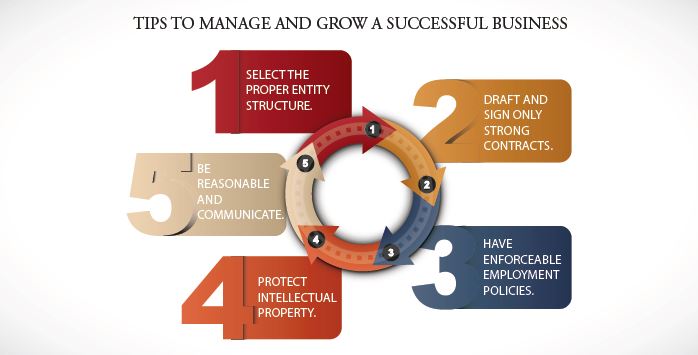"...as a company grows and evolves it may be beneficial to create new entities for varying business units or change the entity’s structure entirely."
GROWING A SUCCESSFUL BUSINESS
Lessons From a Family Business Owner
June 1, 2014
Before becoming an attorney, I spent several years intimately involved in running my family’s marketing and advertising business. On many occasions we found ourselves with upset clients, annoyed vendors, disgruntled employees and unsuccessful business relationships and some of these disputes led to lawsuits. There was no greater source of anxiety than carrying the weight of threatened or pending litigation.
Now, as a litigator it is my mission to keep our corporate clients out of litigation whenever possible. But, too many times, as we prepare them for the overwhelming expense and burden of protracted litigation, a client will ask “What should we have done?”
There is not a simple answer and, quite frankly, nothing can guarantee that you will not get sued.
However, there are some areas where family-owned companies are particularly vulnerable. While some of these areas may seem obvious, our experience tells us that they often get overlooked during the pursuit of managing and growing a successful business.
Select the proper entity structure.
Often, too little attention is paid to the entity’s structure. Should this venture be a corporation, LLC, LLP, partnership, or have some other structure? The answer to this fundamental question is crucial because a structure that may be appropriate for one type of business may be completely ineffective for another. In addition, as a company grows and evolves it may be beneficial to create new entities for varying business units or change the entity’s structure entirely.
Of course, this decision will have a whole host of legal implications including corporate reporting formalities, taxes, financing, succession planning, and personal liability.
It is important to be mindful of the legal ramifications of such a fundamental decision. An effective, well thought-out strategy regarding entity structure can minimize a company’s growing pains and, in turn, mitigate the potential for disputes, reduce the chances of future litigation and limit the potential for personal stakeholder liability.
Draft and sign only strong contracts.
Whether with a customer, vendor, employee, business partner, landlord or tenant, strong contracts provide important protections and should clearly set forth legally binding conditions that all parties must perform.
While it may seem desirable to utilize form contracts and forego the expense of an attorney to save costs, doing so fails to account for the specific needs of the business and the legal ramifications of a breach. Furthermore, contracts signed today likely will have an impact on business decisions far into the future—beyond the vision of many business owners with little or no legal training.
A well written contract will satisfy current needs, address foreseeable contingencies, minimize disputes and help avoid court action.
Have enforceable employment policies.
Enforceable employment policies are a must-have for all companies. The most effective way to communicate and adhere to that policy is through an employee handbook.
Not only does an employee handbook clearly set forth the company’s vision, expectations, and obligations, it is also a tool to ensure compliance with discrimination laws, harassment laws, and hourly and overtime pay requirements, among many others.
State and federal laws are intended to protect employees and as a company grows, so grow its obligations to its employees and potential for liability. What may seem like a minor employment issue can quickly lead to expensive litigation and harsh penalties for the employer.
Having clearly drafted, enforceable company policies, effectively communicated and acknowledged by employees can protect the employer, predict the outcome of a dispute,
Protect intellectual property.
For many companies, trademarks and copyrights are among its most valuable assets. In addition, most companies have an online presence or interactive web site. Protect them.
In order to avoid infringement lawsuits and the misappropriation of intellectual property, companies and their attorneys need to perform the necessary due diligence, register copyrights and trademarks, and maintain a comprehensive website terms of use and privacy policy.
Protecting intellectual property not only protects a crucial element of the success of a company but also can help keep your company out of federal court.
Be reasonable and communicate.
When clients come to us for advice regarding a dispute with an employee, client, vendor, or competitor, the first answer rarely involves daring the other party to file suit. Instead, we urge the client to explore other avenues to resolve the dispute.
Clients tells us about lawsuits costing tens of thousands of dollars that may have been resolved had the parties and their attorneys engaged in a reasonable conversation, discussed their differences, and hashed out a solution.
Of course, no company can guarantee it will not get sued or protect itself from the whims of an overly-litigious customer, vendor, or employee. And in those cases, a vigorous defense must be mounted. However by getting good legal advice and taking some relatively inexpensive steps today your family-owned business can minimize the potential for litigation in the future.
To discuss these issues or others related to your family business, contact: Matthew Bachochin, (312)696-2044, mpbachochin@golanchristie.com.
